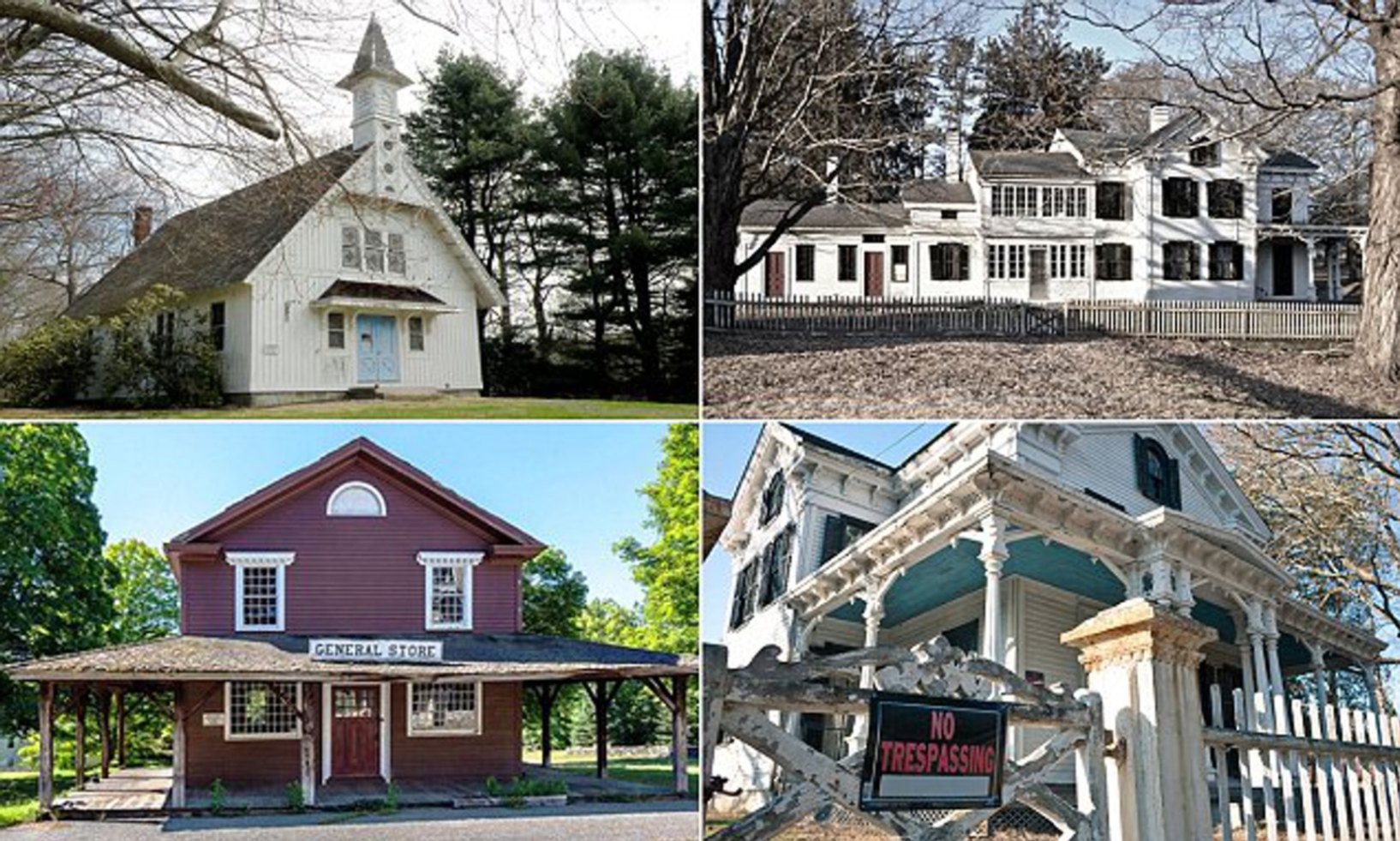Key Highlights
- Investing in an abandoned town offers a unique opportunity to own a piece of history.
- These properties range from former mining town communities to entire company town settlements.
- Prospective buyers must consider significant challenges like remote locations and lack of utilities.
- Notable ghost towns have been sold, with some being revitalized into tourist destinations.
- Legal due diligence, including zoning laws and property titles, is crucial before purchasing.
- The main house and remaining buildings often require extensive and costly renovations.
Introduction
Have you ever dreamed of owning not just a house, but an entire town? The idea of investing in a ghost town is capturing the imagination of adventurous buyers. These abandoned communities, from forgotten mining town settlements to once-bustling industrial hubs, offer a chance to purchase a unique piece of the past. While the thought of reviving a forgotten place is exciting, it is a venture that demands careful planning, significant investment, and a clear vision for the future.
Exploring Ghost Town Real Estate Opportunities: Notable Investments Across the United States
Across the United States and beyond, ghost town properties are emerging as fascinating investment opportunities. These abandoned places tell stories from the past, from the heyday of a mining town in the early 20th centuries to the sudden evacuation of a company town. Each listing, whether it's for acres in Southern California or a historic village in England, comes with its own history. Some properties, like an old railway town, feature buildings in excellent condition with original marble floors, while others are little more than remaining buildings off the grid.
These opportunities are not without challenges, from dealing with the legacy of military use left by the Soviet Union to cleaning up blue asbestos. Yet, for the right investor, the potential to transform a site is immense. The following examples showcase the diverse range of ghost towns that have captured a buyer's interest, from a main house with a country garden to entire commercial villas. Let's look at some notable examples.
1. Eagle Mountain, California: From Mining Legacy to Modern Potential

Once a bustling company hub, Eagle Mountain, California, is a classic example of an abandoned mining town. Founded by Kaiser Steel, the town thrived until the mine closed in the 1980s. Its vacant buildings later housed a low-security prison, but a violent incident led to its closure in 2003, adding a complicated layer to its history. This history highlights a key risk for investors: the past use of a property can bring unexpected challenges.
In April 2023, this sprawling desert property was sold for $22.5 million, demonstrating the significant cost that can be associated with buying an entire town in the US. The buyer's plans remain a mystery, leaving the future of this California ghost town uncertain.
For anyone considering a similar investment, the story of Eagle Mountain serves as a powerful reminder. You must evaluate not only the physical state of the main house and other structures but also the town’s past and how it might impact your vision.
2. Cerro Gordo, California: A Restored Silver Boomtown for Investors
In Southern California, the story of Cerro Gordo, a historic silver boomtown, shows the potential for revival. Many ghost towns are put up for sale by descendants of the original owners or by corporations that no longer have a use for the land. In recent years, entrepreneurs like Brent Underwood have famously purchased and begun restoring such abandoned mining town properties, bringing them back from the brink.
These ventures are often fueled by a passion for history and a desire to create a unique destination. An investor might see potential in restoring original buildings, adding modern amenities like a swimming pool, and turning the site into a tourist attraction or a private retreat.
However, the path is not always easy. Famous ghost towns that have been sold often require immense work and capital to become viable again. The sale of places like Cerro Gordo shows that with dedication, these forgotten pieces of history can find new life and purpose.
3. Johnsonville, Connecticut: Historic Village Turned Investment Property

Imagine finding a listing for an entire historic village. That was the case with Johnsonville, a unique property that has been on and off the market. This New England village, with some of its structures on the National Register of Historic Places, offers a different kind of ghost town investment—one rich with preserved 19th-century architecture. A main house with fine details like marble floors might be included, but so are decaying structures.
Finding such listings can be a challenge. Real estate listings for ghost towns are often found through specialized brokers or auctions rather than traditional channels. The biggest hidden costs of owning such a property often lie beneath the surface.
You might discover the need for extensive infrastructure repair, environmental remediation, or stabilization of historic buildings. The initial purchase price is just the beginning of your financial commitment to a place like Johnsonville.
4. Swett, South Dakota: Small-Town Charm with Big Possibilities
Not all ghost towns are sprawling mining operations. Consider a place like Swett, South Dakota, a tiny hamlet that was once a small company town. With just a handful of buildings, including a tavern and a house, the entire town was put up for sale, offering a more manageable investment. This kind of historic village gives you a chance to create something unique without the overwhelming scale of a larger settlement.
However, even small properties come with risks. Are there restrictions on what you can do with the property? Local zoning laws might dictate whether you can turn the old tavern into a business or if the land is strictly for residential use.
For someone looking to escape their day job and take on a passion project, a small town offers a unique opportunity. But it is crucial to understand all the legal and practical limitations before you make an offer.
5. Garryowen, Montana: Entire Town on the Market
In Montana, the entire town of Garryowen went up for sale, presenting a rare opportunity to own a piece of American history tied to the Battle of the Little Bighorn. A listing for an entire town, complete with a main house, a convenience store, and a museum, is the ultimate real estate venture. The cost to buy a ghost town in the US varies dramatically, from a few hundred thousand to millions of dollars, depending on the size, location, and condition.
This type of purchase isn't limited to the United States. Individuals can and do buy abandoned towns outside the US, as seen with villages in Spain and Italy. However, the legal frameworks and cultural contexts are very different.
For an investor, owning a historic village like Garryowen is more than a financial decision; it's a commitment to becoming a steward of its story. It offers a chance to leave your day job behind and manage a unique piece of the American West.
Key Considerations Before Investing in Ghost Towns Real Estate
Before you pursue a listing for an abandoned town, it is vital to understand the immense challenges involved. Owning a ghost town means confronting issues you would not face with a typical property. You must investigate property restrictions and zoning laws that could limit your plans for the main house and remaining buildings. Many of these towns are miles from the nearest city, like Lobo, TX, near Big Bend National Park, meaning you could be completely off the grid without basic utilities.
The current state of the property might include everything from a simple outhouse to grand but decaying villas with marble floors. Prospective buyers must be prepared for the reality of living in the middle of nowhere and the significant investment required to make the location habitable. The following sections will help you understand the legal and practical hurdles you will need to clear.
Legal Requirements for Purchasing Ghost Town Real Estate
Purchasing an abandoned town involves navigating a complex web of legal requirements. Unlike a standard home purchase, you are often dealing with properties that have been neglected for decades. The first of many legal steps is to ensure the seller has the right to sell. This process is far more complicated when a town has multiple parcels or unclear ownership records.
You must also consider the land's history. For example, some sites in England or former Soviet Union territories were used for military use, which can bring unique legal and environmental issues. Before you buy, it is essential to work with legal experts who specialize in unique real estate transactions. They can help you uncover any property restrictions or liens that could derail your project. Below are some key legal steps to take.
Legal Step: Comprehensive Title Search
Description: Verify clear and undisputed ownership of all parcels. This prevents future claims or disputes over the land.
Legal Step: Zoning and Land Use Analysis
Description: Review local zoning laws to confirm your intended use (commercial, residential, historical) is permitted.
Legal Step: Environmental Site Assessment
Description: Investigate the land for contaminants like blue asbestos or industrial waste, especially in a former mining town.
Legal Step: Permit and Easement Review
Description: Identify all required permits for renovation and check for any existing easements that grant others access to your property.
Evaluating Property Restrictions and Zoning Laws
Understanding property restrictions and zoning laws is one of the most critical parts of your due diligence. These rules dictate what you can and cannot do with your ghost town. An abandoned town might be subject to historic preservation ordinances, especially if it is considered a significant site. This could limit your ability to alter or demolish existing structures.
For example, a mining town could have environmental restrictions due to past activities, such as rules about handling soil contaminated with blue asbestos. In extreme cases, like the evacuation of Wittenoom, Australia, the entire area may be deemed unsafe for habitation. Zoning laws will also determine if you can develop the land for tourism, residential living, or commercial enterprises.
Before you invest, you need to ask key questions:
- What is the property's official zoning designation?
- Are there any historical preservation covenants or restrictions?
- Are there environmental cleanup orders or known hazards on the site?
- Can you get permits for new construction or utility installation?
Conclusion
Investing in real estate ghost towns presents a unique opportunity for adventurous investors looking to explore uncharted territories. While the potential for growth and revitalization is significant, it's essential to approach these investments with careful consideration. From understanding the historical significance of these towns to navigating legal requirements and zoning laws, thorough research is vital. As you embark on this brave new venture, remember that each ghost town carries its own story and potential. Stay informed, be prepared for the challenges, and embrace the excitement of uncovering hidden gems. If you're interested in taking the plunge into ghost town real estate, we're here to help guide you through every step of the process.
Frequently Asked Questions
What are the hidden costs of owning a ghost town real estate property?
Hidden costs often include restoring basic infrastructure like water and electricity, extensive repairs to remaining buildings, environmental cleanup from past industrial use, and high insurance premiums. A former mining town or company town could have unforeseen structural or contamination issues that add significant expense long after the purchase.
Where can I find listings for ghost towns real estate available for sale in the US?
You can find a listing for ghost towns through specialized real estate agents who handle unique properties, auction websites, and by networking with historical societies. States with rich histories like Texas, Montana, and California sometimes have these properties come up for sale, occasionally appearing on the National Register of Historic Places.
What risks should investors consider before buying ghost towns real estate?
Investors should consider the immense financial risk of restoration, complex legal issues with titles and zoning, and major logistical challenges. Many ghost town properties are miles from modern amenities, and the costs of making abandoned communities habitable can quickly exceed the initial investment, turning a dream project into a financial burden.





